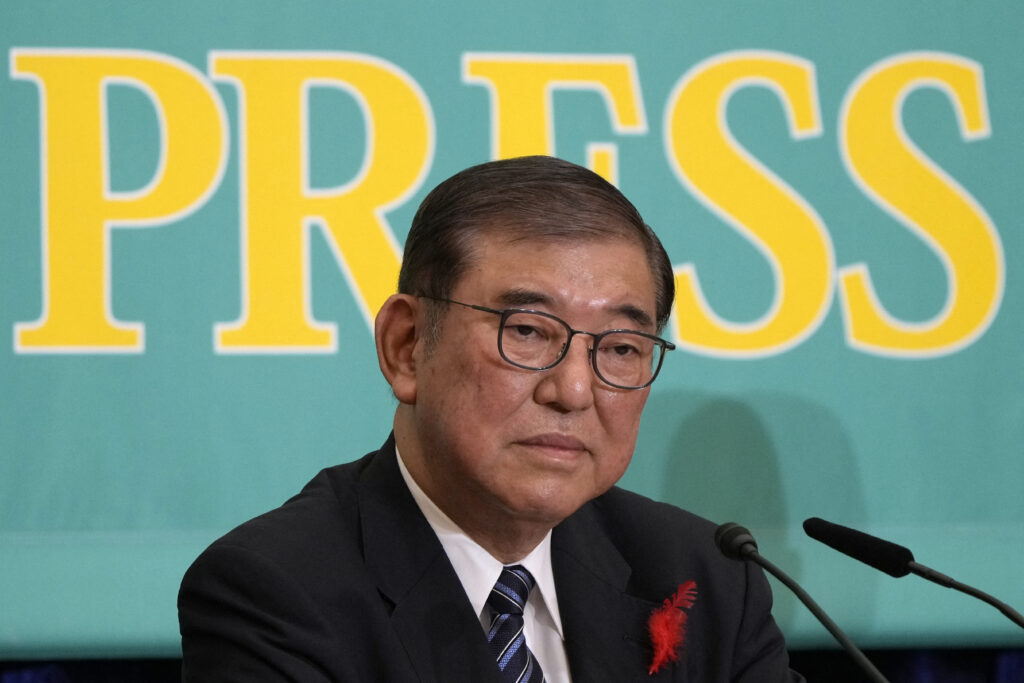
- ARAB NEWS
- 01 Aug 2025

TOKYO: The 12-day campaign period for an election for Japan’s House of Representatives, the all-important lower chamber of parliament, kicked off Tuesday.
Political reform is a major issue in the campaigning for the Oct. 27 general election, following a slush funds scandal involving the ruling Liberal Democratic Party. Policies for economic revitalization and addressing the country’s declining birthrate are also high on the agenda.
As of 12:30 p.m., 1,332 people filed their candidacies in the election for the 465-seat Lower House–1,102 for the 289 seats from single-seat constituencies and 230 for the 176 proportional representation seats. In the previous 2021 race, 1,051 people filed their bids, the lowest number under the current electoral system.
The number of women who filed candidacies as of 12:30 p.m. stood at 311, topping the previous record high of 229 logged in the 2009 election.
Prime Minister ISHIBA Shigeru has said that his LDP and its partner, Komeito, aim to win at least 233 seats together, a majority in the Lower House. When the chamber was dissolved on Wednesday for the election, the ruling coalition had 288 seats combined–256 for the LDP and 32 for Komeito.
The voting will be held just 26 days after Ishiba took office, the shortest such period in Japan’s post-World War II history. He called the short election to take advantage of the sense of renewal from his new administration.
The LDP has clinched massive wins in all four general elections since 2012, when the party returned to power. Many are closely watching to see whether the LDP can gain a majority alone in the Lower House.
NODA Yoshihiko, leader of the major opposition Constitutional Democratic Party of Japan, is looking to block the LDP-Komeito coalition from obtaining a majority. He has repeatedly said, “A change in power is the biggest political reform.”
But the CDP is cooperating less with other opposition parties compared with the previous general election due to a feud with the Japanese Communist Party.
How much the CDP can increase its seat share from the pre-election count of 98 will be a key focus, going into next summer’s election for the House of Councillors, the upper parliamentary chamber.
Among other opposition parties, Nippon Ishin no Kai (Japan Innovation Party) had 43 seats, the JCP 10 and the Democratic Party for the People seven.
As of 12:30 p.m., the LDP fielded 342 candidates in the latest race, followed by the CDP with 237, the JCP with 236 and Nippon Ishin with 164. Some LDP members who were embroiled in the slush funds scandal are running as independents as they failed to win the party’s endorsement as candidates.
Ishiba, in his first speech of the campaign period in Iwaki, Fukushima Prefecture, expressed regret over the scandal. He described the poll as an “election for the birth of Japan.”
Noda, in a stump speech in Hachioji, Tokyo, said that the scandal “should not be forgiven” and that the country should “put an end to LDP politics.”
In a speech in Tokyo, Nippon Ishin leader Nobuyuki Baba pledged thorough transparency over money in politics.
JCP head Tomoko Tamura said in a speech in Tokyo that the LDP will not change even after adopting new leadership, referring to last month’s election of Ishiba as its new party chief.
JIJI Press